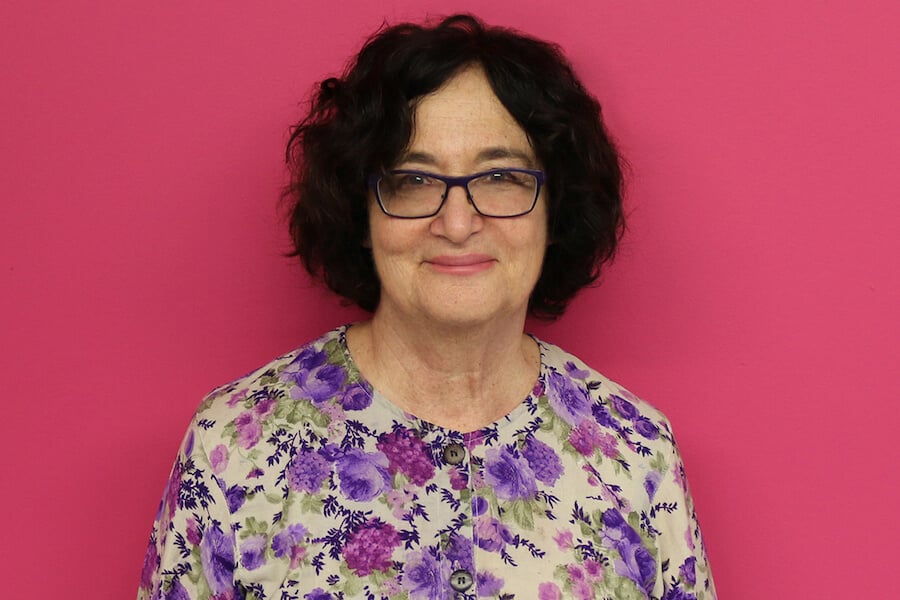
Activist, feminist and author Judy Rebick and filmmaker Mike Hoolboom were supposed to be presenting their documentary Judy Versus Capitalism at the Rendezvous With Madness Film Festival this week. But thanks to the latest wave of COVID-19 restrictions, that won’t be happening.
Instead, the film – an impressionistic adaptation of Rebick’s memoir Heroes In My Head – will be available to stream on the festival’s website starting Thursday, October 15. This also happened in the sprin, when the pandemic forced Hot Docs to shift to virtual screenings.
In the latest episode of our NOW What podcast, Rebick and Hoolboom join me to discuss the making of the documentary, which naturally led to a conversation about Rebick’s remarkable life. You can listen to the entire conversation at the bottom of this page, or find the episode at Apple Podcasts or Spotify.
“It’s astonishing to me that there is not a miniseries about Judy, at least,” Hoolboom laughs. “Six or seven or 10 or 12 parts maybe, which would look at the entire trajectory of second-wave feminism in Canada. Of course, Judy’s not the only person in that [story], but she’s a very central person… how could you not make a movie about that?
“We first met through Velcrow Ripper, who’s a mutual friend, about 10 years ago now,” Rebick recalls. “Velcrow was living on the island and we were both invited to dinner – I think it was New Year’s Eve.”
“He read our tarot cards and it caused us to miss the last ferry,” Hoolboom laughs. “It was a bonding experience.”
The documentary mixes Super 8 video and archival clips to span the decades of Rebick’s life and career, from her early feminist activism in the 70s through her work defending and protecting abortion-rights advocate Dr. Henry Morgentaler – in one case, quite literally – and her time with the National Action Committee on the Status of Women.
And through it all, Rebick was dealing with dissociative disorder brought on by childhood sexual abuse; though she believes her personal situation may be what drove her to activism in the first place.
“It’s the only way I could do it, right?” she says. “I was sexually abused as a child. When you go through therapy for that kind of abuse, the overwhelming feeling – certainly for me, and I think for others too – is a sense of utter powerlessness. And so I think doing the abortion work was like therapy for me: I felt powerful, even to the point of physical confrontation. And on top of that, because of the dissociative identity disorder, I was fearless. I never felt fear, or anxiety for that matter.
“I was just saying to a friend that I feel anxiety now, and I don’t know how to handle it because I’ve never felt it before,” she laughs.

“Mental illness as a creative act”
Hoolboom says the way Rebick has “reframed so-called mental illness as a creative act is very important and very empowering.”
“That’s something I’ve tried to explore in my book,” Rebick says. “Most people who are what we call mentally ill are not ill. They’re hurt, and they need to heal their hurt. And the way we marginalize people who are mentally ill, someone who had [the same issues] I had but didn’t have the privilege that I had could wind up in the street – could wind up hospitalized, could wind up completely dysfunctional.”
Hoolboom employs an artful visual language in Judy Versus Capitalism to convey his subject’s mental state. He constantly comes back to images of support between people to illustrate her healing process.
“Judy has many stories to tell, and she tells them so well – she’s a walking soundbite machine,” Hoolboom says, not unkindly. “The question was, what kind of pictures might accompany [them] to produce a conversation? And that led me towards gestures, gestures between people.”
Rebick thinks the film’s motifs of support and empathy are an accurate representation of her path to recovery. “I read a wonderful piece by Kai Cheng [Thom], who said that if you’re a marginalized person, you never really heal,” Rebick says. “You just learn to live with it and learn how to handle it.
“I think that’s right, you never heal completely. I still get triggered sometimes and go back to that scary, scary place. But you have better tools to handle it.”
You can listen to the entire conversation on Apple Podcasts or Spotify, or just play it below.
NOW What is a twice-weekly podcast that explores the ways Torontonians are coping with life in the time of coronavirus. New episodes will be released every Tuesday and Friday.












